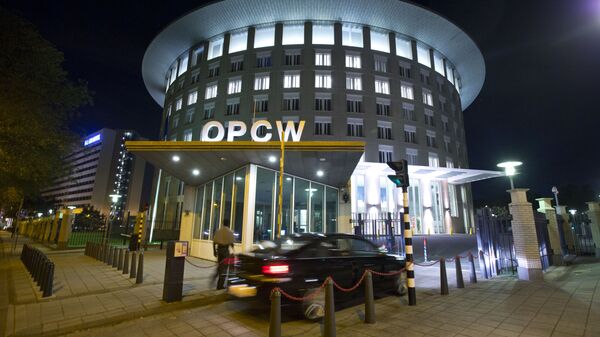The Investigation and Identification Team (IIT) was established in 2018. Russia opposed the move, warning against expanding the OPCW’s competence from conducting probes to attributing blame and saying that only the UN Security Council is eligible to make such judgments.
"[T]he IIT has concluded that there are reasonable grounds to believe that the perpetrators of the use of sarin as a chemical weapon in Ltamenah on 24 and 30 March 2017, and the use of chlorine as a chemical weapon on 25 March 2017 were individuals belonging to the Syrian Arab Air Force", IIT Coordinator Santiago Onate-Laborde said in a statement.
According to him, "attacks of such a strategic nature would have only taken place on the basis of orders from the higher authorities of the Syrian Arab Republic military command".
"In the end, the IIT was unable to identify any other plausible explanation", he added.
Commenting on the report, OPCW Director-General Fernando Arias said that the IIT is "not a judicial or quasi-judicial body with the authority to assign individual criminal responsibility, nor does the IIT have the authority to make final findings on non-compliance with the Convention."
"It is now up to the Executive Council and the Conference of the States Parties to the Chemical Weapons Convention, the United Nations Secretary-General, and the international community as a whole to take any further action they deem appropriate and necessary", he stated.
The IIT explains its mission as identifying and reporting "on all information potentially relevant to the origin of those chemical weapons in those instances in which the OPCW’s Fact-Finding Mission (FFM) determines or has determined that use or likely use occurred".
The FFM concluded back in June 2018 that sarin and chlorine were "very likely used as a chemical weapon" in Ltamenah on 24 March 2017, and 25 March 2017, respectively.
Damascus has repeatedly refuted the allegations of the chemical weapons use, saying that the full destruction of its arsenal was confirmed by the OPCW in 2016.


